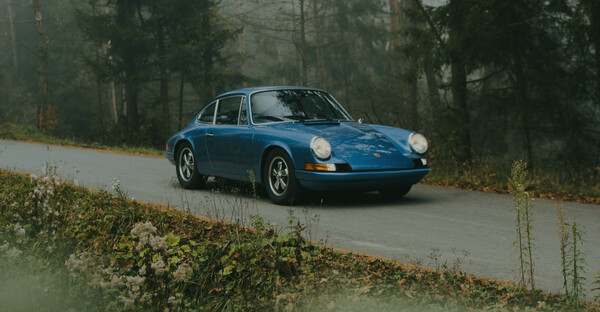Description
Details:
A new offering at Oldtimer Australia is this incredible Bugatti Type 51 Grand Prix by Pur Sang.
Back in the 1920’s and 1930’s Argentina rivalled almost any country in Europe. It was the place all the wealthy Europeans went to get away from the war time chaos. Buenos Aires was often referred to as the Paris of the South. They brought everything they had from Europa to Argentina and as a result Argentina became well known as a leader in wine making, horse racing, polo and of course motorsport.
Some of the world’s great cars, from marques such as Bugatti, Mercedes-Benz and Alfa Romeo, were delivered new in relatively significant numbers into Argentina. However, when the owners needed parts, they still needed to order them from Europe and it would often take months for them to arrive. As a result, when something broke, the mechanics had to be innovative and creative. Necessity is the mother of invention and this resulted in some serious craftsmanship being developed in a highly skilled workforce.
Pur Sang Argentina was founded over forty years ago with its roots firmly linked to country’s industrial past. The business was established in the 1980’s in Paraná, a city some 500 km north of Buenos Aires. It soon developed an excellent reputation for creating excellent tool room copies of Bugattis from the 1920’s and 1930’s. In more recent times they have been building Alfa Romeo and Mercedes-Benz recreations from the same era.
The Bugatti Type 51 by Pur Sang has been produced using original factory specifications, both in design and material. Whilst the cars produced by Pur Sang are close to tool room copies, they do make subtle improvements and small modifications. Most of these are not visible but make for a more reliable and usable car. The application of forged pistons, plain bearings and modern oil seals to make the engine, gearbox, and rear axle oil tight have helped increase performance while reducing maintenance. The frame is hand formed in the same fashion as it was originally built by Bugatti way back in the 1930’s.
The current owner ordered this car directly from Pur Sang, Argentina in October 2006 and took delivery of the car in July 2007. He immediately decided to further improve the car with modifications including: the manufacture and installation of a new manifold, the fitting of 2 inch SU carburettors, electronic ignition as well as a modified Magneto. He also fitted an electric fuel pump.
The owner used and enjoyed his Type 51 on various club runs and social outings, however, he is a perfectionist and became frustrated with light surface corrosion that appeared on the bare steel components of the car. His solution was to take the car to well respected classic car restoration specialists Historic and Vintage Restoration (HVR) in Melbourne to nickel plate all the bare steel parts on the car. At the same time he decided to have the car repainted and fit a new set of period correct alloy wheels from Crosthwaite & Gardiner in the UK. This work was completed around five years ago.
Today this Type 51 presents like a new car. The striking yellow over black colour scheme really suits the car and the paint is still in excellent condition. One has to look hard to find any imperfections. The only one we found is a small chip on the top of the bonnet. All of the external trim, including the trademark radiator are similarly well presented.
The wheels are shod with soft compound Dunlop Racing tyres size 5. 00 – 19 front and rear. Both the wheels and the tyres are in excellent condition.
The interior is functional yet very basic as you would expect in a car like this. Everything is in excellent condition and presents essentially like new.
The more you look at the car the more detail you will notice. The devil is in the detail and some of its features are the delicate gear lever and hand brake levers, the safety wire for the external bolts, the leather straps to secure the bonnet and of course the ‘oh so cool’ bonnet mascot!.
The original Bugatti Type 51’s are not to be underestimated when it comes to performance. With a healthy 160hp from its supercharged, dual overhead cam, straight eight, 2. 3 litre engine and the car only weighing around 800kg . . . they were frighteningly fast! Our Bugatti Type 51 by Pur Sang would most likely outperform an original car and even by today’s standards it is a very fast and capable car.
Driving this car is an incredible experience. The theatre begins with the process of starting the car. You cannot simply jump in, turn the key, fire up the engine and drive away. There is a process to be followed but once you have completed all the steps you are rewarded with a magnificent symphony from the jewel of an engine and the relatively inconspicuous twin exhaust pipes. The car is a little cranky as she fires up, but in no time at all the engine is soon firing on all eight cylinders. The instructions are to wait for everything to warm up before taking the car out on the road.
The positioning of the gear lever is quit interesting. The car is right hand drive and like many similar cars of this period it features a right hand gear shifter. The gate is inside the car and the lever sticks out through the body work at an angle. This creates quite an interesting experience when you are driving the car but one you quickly get used to. Once you master the gear changes the driving experience is most rewarding.
Out on the road this car is heaps of fun to drive. It is quick, responsive and very nimble. It also feels surprisingly solid on the road. The car is equipped with original style drum brakes all around and that also takes a bit of getting used to but they do pull the car up well and in a straight line when required. The engine in this car is ‘something special’ and it just wants to go. Did we mention the noise . . . incredible!
We can only imagine what it must have been like to own one of these cars back in the 1930’s and drive it in anger.
Since arriving in Australia, the car has been used sparingly. The owner estimates he has probably only travelled around 800 km, the majority of which were completed prior to works completed by HVR.
This car is documented in Bob King’s fabulous book – Bugattis in Australia and New Zealand 1920 to 2012.
Highlights:
- Beautifully presented recreation of an iconic prewar sports car.
- Powered by a supercharged, dual overhead cam, straight eight of 2. 3 litre capacity.
- Fabulous colour scheme.
- Recently refreshed to a very high standard by HVR.
- Ready to show, use and enjoy
Price AUD $399, 950
Background:
Ettore Bugatti was born in Milan Italy on the 15th September 1881. He was part of a very entrepreneurial and creative family. His grandfather was an architect and sculptor, his father a furniture and jewellery designer of some note and other members of the family were sculptors and artists. Ettore was obsessed with the evolution of the automobile and in 1898 he built his first car as a teenager. Over the next ten years he built a number of cars, however, it wasn’t until the 1st January 1910 that he founded Automobiles Ettore Bugatti in the then-German city of Molsheim, Alsace. Bugatti started building cars in earnest and the Type 13 is today considered to be the first real Bugatti. The First World War proved to be temporary roadblock for Bugatti and once the Treaty of Versailles was signed on the 28th July 1919 it was ‘back to work’! Following the War, the region of Alsace became part of France and Ettore Bugatti lost no time in refocussing his energy on automobiles. At the last minute, Bugatti was able to obtain a stand at the 15th Paris Motor Show held in October 1919. He exhibited three light cars and not surprisingly all of them were closely based on their pre-war equivalents. Each model was fitted with the same overhead camshaft 4 cylinder engine of 1, 368cc capacity with four valves per cylinder. The three cars were the Type 13 (built on a 2, 000 wheelbase), the Type 22 (built on a 2, 250 mm wheelbase) and the Type 23 (built on a 2, 400 mm wheelbase).
The Bugatti name soon became synonymous with high performance cars. Their road cars were purchased by the rich and famous and their race cars dominated on circuits all around the world. By the mid 1930’s Ettore Bugatti’s son, Jean, was effectively running the factory overseeing the production of the cars, whilst Ettore spent most of his time in Paris. Times were good, however, things changed quickly and when Jean Bugatti was killed road testing a Type 57 race car in August 1939 it was the beginning of the end. The Second World War broke out shortly thereafter and the Bugatti factory was essentially destroyed and seized. The War ended in September 1945 and attempts to restart the factory were ultimately futile… Ettore Bugatti died in August 1947. A handful of cars were built from 1945 through until the original incarnation of Bugatti ceased operations in 1952.
Models such as the Type 35, the Type 41 (Royale), Type 57 and Type 59 have become legendary and are amongst the most desirable cars ever built.
One of Bugatti’s most significant cars was the Type 30 that was introduced in 1922. The Type 30 was powered by the same 1, 991 cc engine used in the Type 29 race car. It shared its chassis, axles and gearbox with the Type 13 Brescia. Around 600 examples were built from late 1922 through until 1926 in varying specifications. The successor to the type 30, the type 35 was first introduced at the 1924 French Grand Prix. It was powered by a single overhead cam eight cylinder engine with a capacity ranging from 1, 092cc to 2, 262cc. Some engine were even supercharged and delivered up to 130hp. The type 35 and its variations was a huge success and over 1, 000 races were won.
In 1931 its successor went into production, the Type 51. It was power by a straight eight, twin overhead cam, engine with a capacity of 2, 262cc which produced 160hp. Though the Type 51 struggled in competition against newer and more technologically advanced state-sponsored machines from Italy and Germany, the model was a long term success with marque enthusiasts and vintage racers. During its four years of production some 40 examples were produced. The Bugatti Type 51 is today considered to be at the pinnacle of Bugatti’s most celebrated race car design.
Incredibly, Bugatti built almost 8, 000 cars through until 1956.















